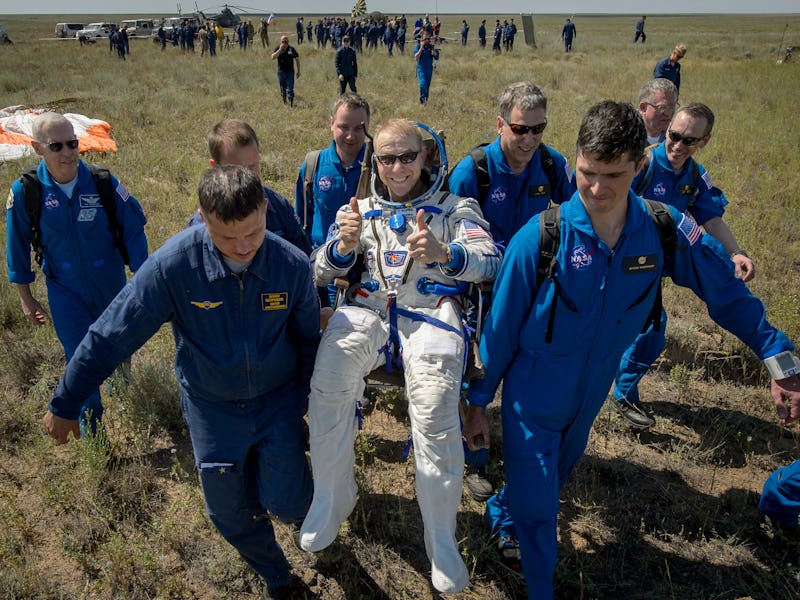Since 2011, NASA and European Space Agency astronauts have been hitching a ride to the International Space Station on the Roscosmos Soyuz spacecraft. NASA only pays for a certain amount of tickets aboard the Russians’ multi-million taxi into space, but fortunately, U.S. aerospace company Boeing has a few spares it’s willing to scalp.
Space News reports that NASA filed a “sources sought” procurement on January 17 floating the idea of buying two seats on the Soyuz from Boeing for trips to the ISS in fall 2017 and spring 2018. A source’s sought procurement is basically saying that a government agency is interested in making a purchase, so nothing’s official yet, but the Boeing-owned seats are the best way to get extra astronauts up to the ISS on a short-term basis.
Boeing won the rights to the seats through a complicated legal decision with RSC Energia, the Russian company that makes the Soyuz Capsule. Boeing and Energia were partners on a project called SeaLaunch back in 2013, when the American company filed a lawsuit alleging that Energia didn’t pay it back for some third-party contracts Boeing paid for. In the settlement, Boeing won a $360 million judgment from Energia in May, but then reportedly took a settlement from the Soyuz makers, which included a few tickets to the ISS in the place of cash. The company can now re-sell those Soyuz tickets to the highest bidder (i.e. NASA, it’s going to be NASA).
There’s space on the Soyuz in the first place because Russia recently decided to downsize its ISS mission from three astronauts to two, meaning Roscosmos doesn’t need as many places in the ride up for the next few years’ ISS trips.
Boeing has until January 27 to respond to NASA’s sources sought filing, after which Elbon expects the two parties will start negotiating on the exact price. NASA was paying Roscosmos about $81.7 million per seat, and John Elbon, VP and general manager of space exploration at Boeing told Space News he didn’t expect Boeing to gouge them much more than that.
“It’s a good value for NASA and the taxpayer,” Elbon said. “We wouldn’t ask them to pay more than they would have been paying before.”
Boeing’s seats will let NASA put an extra American on the ISS a little earlier than it had planned. Both SpaceX and Boeing have plans for commercial crew vessels that can take astronauts to the station, but neither company will be ready to fly until at least 2019, so both Boeing and NASA are covering their backs in the event that commercial flights hit more delays, which would pretty much put NASA at the mercy of Roscosmos. Right now, both private spaceflight options — Boeing’s Starliner and SpaceX’s Dragon capsule — are on schedule, but Elbon told Space News that “it seemed to us it might make sense to NASA to have some insurance just in case.”
